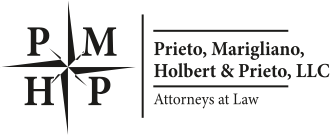Whistle-blowing is a courageous act of reporting wrongdoing, ethical breaches, or illegal activities within an organization. It’s a vital process that champions transparency and integrity, often at some personal risk. If you’re considering stepping forward as a whistle-blower, know that your actions can effect meaningful change and protect others from harm.
Through historical examples, we’ll talk about what a whistle-blower case is and highlight significant cases that have shaped what it is today.
What is a Whistle-Blower Case?
A whistle-blower investigation involves an individual or group of individuals who expose illegal, unethical, or unsafe practices in their organization. These actions are often done at great personal risk, as whistle-blowers risk facing retaliation. But there are things that can be done to mitigate those risks. Let’s first discover some famous cases that have changed the definition of whistle-blowing in America:
1. America’s First Whistle-Blowers: Samuel Shaw and Richard Marven
In 1777, during the American Revolution, two naval officers named Samuel Shaw and Richard Marven exposed corruption within the Continental Navy. They reported incidents of mismanagement, embezzlement of funds, and violation of maritime laws.
As a result, the Continental Congress established the first whistle-blower protection law in America, allowing whistleblowers to be rewarded for their actions. Shaw and Marven’s case set the precedent for future whistle-blowing laws and protections.
2. NYPD’s Frank Serpico
Frank Serpico was a New York City police officer who exposed rampant corruption within the department during the 1960s and 1970s. He witnessed bribery running rampant, with officers taking money from gamblers, drug dealers, and pimps.
Despite facing harassment and death threats, Serpico refused to back down and testified against his corrupt colleagues in front of the Knapp Commission. His actions sparked a complete overhaul of the department’s practices and policies. Because of the Serpico whistle-blower case, police departments nationwide have implemented internal affairs divisions to investigate corruption.
3. General Electric’s Vera English
In 1990, Vera English was fired from her job at the General Electric Company after reporting safety violations and fraud within the company. She filed a lawsuit against GE for wrongful termination under the Sarbanes-Oxley Act, which prohibits companies from retaliating against whistle-blowers.
Her case eventually made it to the Supreme Court, where she won a landmark decision in favor of whistle-blower protection. English’s actions have opened doors for other employees to report wrongdoing without fear of retaliation. We learn from English’s case that speaking up can make a difference and bring about change within a company.
4. GlaxoSmithKline’s Dr. Babak Babakinejad
Dr. Babak Babakinejad was a researcher at GlaxoSmithKline and uncovered fraudulent data used in a drug trial. Despite facing threats and intimidation from the company, he reported his findings to the FDA.
His actions led to the largest healthcare fraud settlement in U.S. history, with GlaxoSmithKline paying a record-breaking $3 billion fine in their whistle-blower case. Dr. Babakinejad’s case shows that whistle-blowers can hold even the biggest corporations accountable for their actions.
5. US Army’s Joe Darby and the Abu Ghraib Prison
In 2004, Army Specialist Joe Darby exposed the abuse and torture of prisoners at Abu Ghraib prison in Iraq. He leaked photographs to military investigators, leading to an investigation and convictions for multiple soldiers involved in the scandal.
Despite facing backlash from his fellow soldiers, Darby’s actions ultimately led to justice for the victims of the abuse. His bravery also sparked conversations about the treatment of prisoners in U.S. facilities and led to changes in military policies.
What Can We Learn from These Cases?
Each of these whistle-blower cases has played a significant role in shaping whistle-blowing laws and protections in America today. They have also shown us that speaking up can result in positive change, even if it comes with personal risks.
Fortunately, there are laws in place that can protect whistle-blowers from retaliation, and there are also experienced attorneys who specialize in representing them. It’s imperative that organizations foster a safe environment for employees to report wrongdoing without fear of reprisal—but if you don’t feel that support, a knowledgeable whistleblower lawyer may be the right path for your experience.
Take Action With the Help of PMHP
If you have witnessed illegal, unethical, or unsafe activities within your organization, don’t hesitate to speak up. Remember that your actions can make a positive impact and bring about necessary change. At PMHP Law, we have a team of experienced attorneys who can help you be successful in your whistle-blower case. Contact us today to take the first step toward making a difference. We’re here to help.

